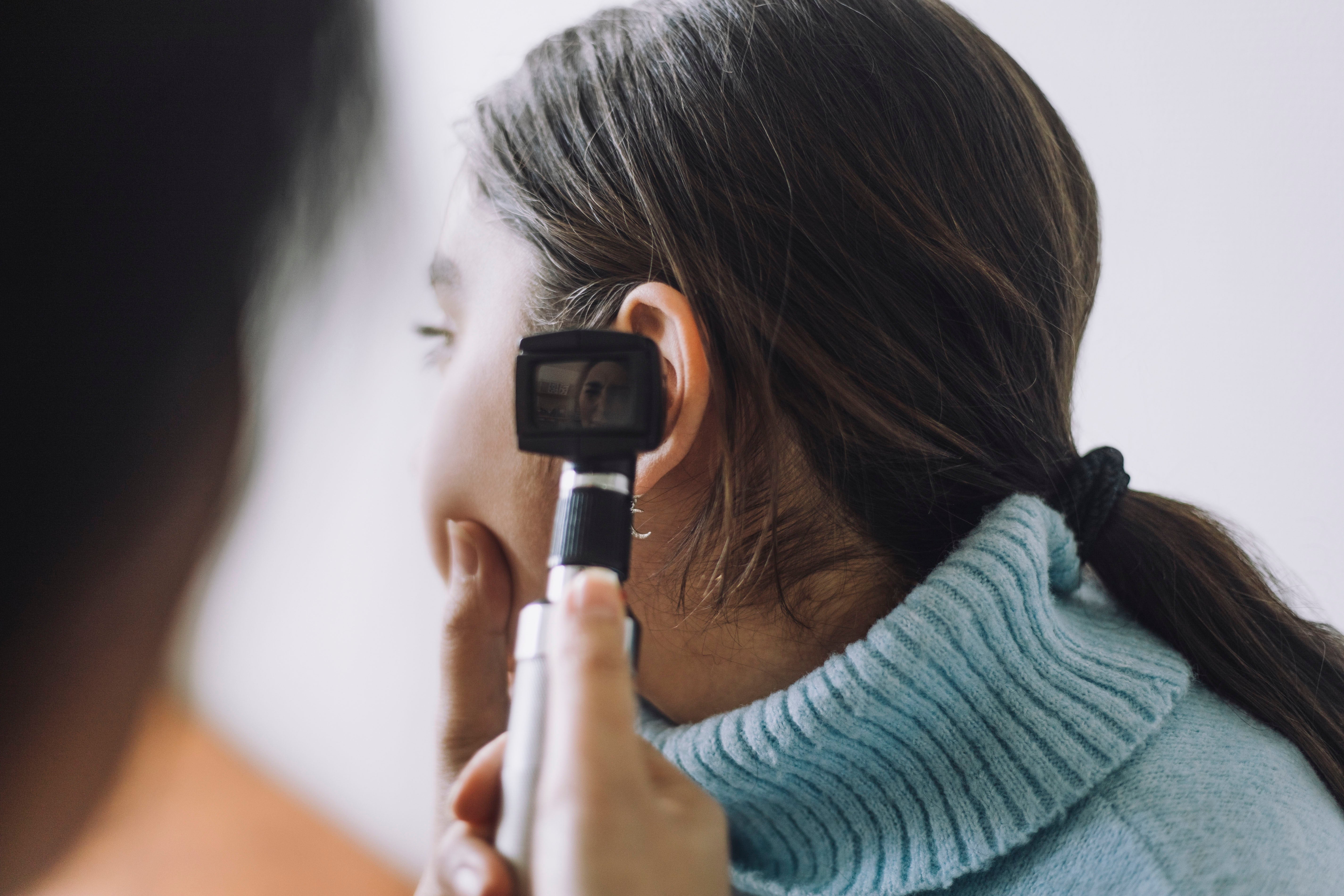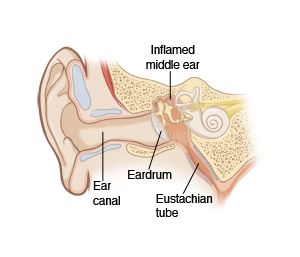You have an infection of the middle ear, the space behind the eardrum. It's also called acute otitis media (AOM). It can follow a cold or allergies. This is because congestion from either can block the internal passage (eustachian tube) that drains fluid from the middle ear. When the middle ear fills with fluid, bacteria can grow there and cause an infection. Oral antibiotics are used to treat this illness. Symptoms often start to improve within 1 to 2 days of treatment.
Home care
Here are some general care guidelines:
-
If your doctor prescribed antibiotics, take them as directed. Do not stop taking them just because you feel better. You need to take the full course of antibiotics.
-
You may use over-the-counter medicine, such as acetaminophen or ibuprofen, to control pain and fever unless something else is prescribed. Talk with your doctor before using these medicines if you have chronic liver or kidney disease. Also talk with your doctor if you've had a stomach ulcer or digestive tract bleeding or take a blood thinner.
-
Don't give aspirin to children or teens unless your child’s doctor says it is safe. Aspirin can put your child at risk for Reye syndrome, a rare but serious condition.
Follow-up care
Follow up with your doctor as advised. If all symptoms haven't gotten better, or if your hearing doesn't go back to normal in 2 weeks, you may need further treatment.
When to contact your doctor
Contact your doctor right away if:
-
You have a seizure. Call 911 if this is the first time you have had a seizure.
-
Your ear pain gets worse or doesn't improve after 3 days of treatment.
-
You have abnormal drowsiness or confusion.
-
You have neck pain, a stiff neck, or headaches.
-
Fluid or blood is draining from the ear canal.
-
You have a fever of 100.4°F (38°C) or higher, or as advised.



